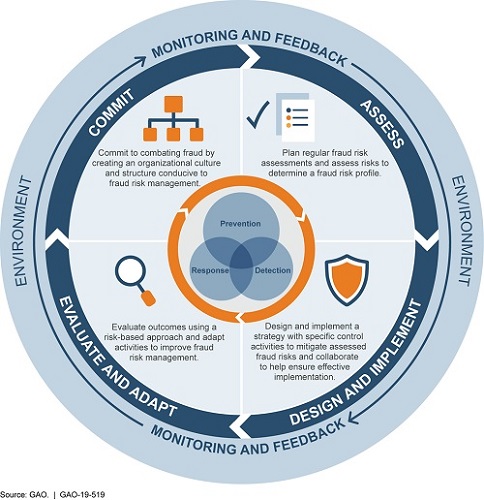WKU News
Issues of Eligibility Fraud Uncovered in Investigation
- T/TAS at WKU
- Tuesday, October 15th, 2019

A report published by the Government Accountability Office (GAO) in September shows instances of fraud in the Head Start eligibility process, as revealed in an undercover investigation. Per the report, GAO investigators attempted to enroll children of fictitious families in 15 metropolitan Head Start centers (Los Angeles, Detroit, Chicago, New York, and Boston) using information that should have disqualified the applications, ie: pay stubs that exceed income requirements.
What the GAO Investigation Found:
- Three Head Start Centers encouraged the fictitious families to attend without following all requirements of eligibility verification.
- Potential fraud at five centers. In three cases, documents retrieved from the Head Start center later showed the applications had been altered to exclude income information previously provided that showed the fictitious family to be over the income requirements. In two cases, Head Start center staff dismissed eligibility documentation the fictitious families offered during the enrollment interview.
- Seven centers used correct verification procedures to determine the fictitious families are not eligible for enrollment.
Christopher Watkins, Executive Director and Program Administration Specialist of WKU’s Training and Technical Assistance Services (T/TAS) division said, “In my opinion, the most risk-laden area in Head Start is the eligibility process. While the Office of Head Start may require programs to train staff, Policy Council and Board Members on the topic, there is no amount of training that will mitigate fraud. This GAO study is a repeat of actions taken previously in this area. The findings are classic examples of staff not following the procedures and then others not monitoring appropriately.” Watkins believes the likely result will be even greater scrutiny on Head Start programs in terms of eligibility verification.
The GAO made six recommendations to the Office of Head Start as a result of this report:
- The Office of Head Start (OHS) perform a fraud risk assessment
- As part of the fraud risk assessment, explore options for additional risk-based monitoring of the program, including covert testing
- Develop a system to monitor and evaluate the effectiveness of its new workflows
- Communicate guidance on when a student’s slot should be considered vacant due to absenteeism
- Adopt an approach for using attendance records to verify the reliability of enrollment data
- Develop and implement a method to document attendance and services under EHS pregnancy programs.
"A key takeaway from the recommendations of the GAO is a clear focus on organizational processes, procedures, and accountability." says T/TAS Managment Specialist Krystal Lindsey. "Too often Head Start and Early Head Start programs substitute custom and practice for procedure. It is incumbent upon all programs to examine employee onboarding activities, professional development opportunities, and written procedures." Lindsey emphasizes establishing an organizational culture of compliance, focusing on awareness of bigger picture implications that starts the moment staff walks in the door of the facility.
The full report can be found here.
_________________________
J. Christopher Watkins, Executive Director
Training & Technical Assistance Services (T/TAS)
Western Kentucky University
800.882.7482
www.ttas.org
ttas.info@wku.edu
Advancing knowledge within early learning communities
Some of the links on this page may require additional software to view.

